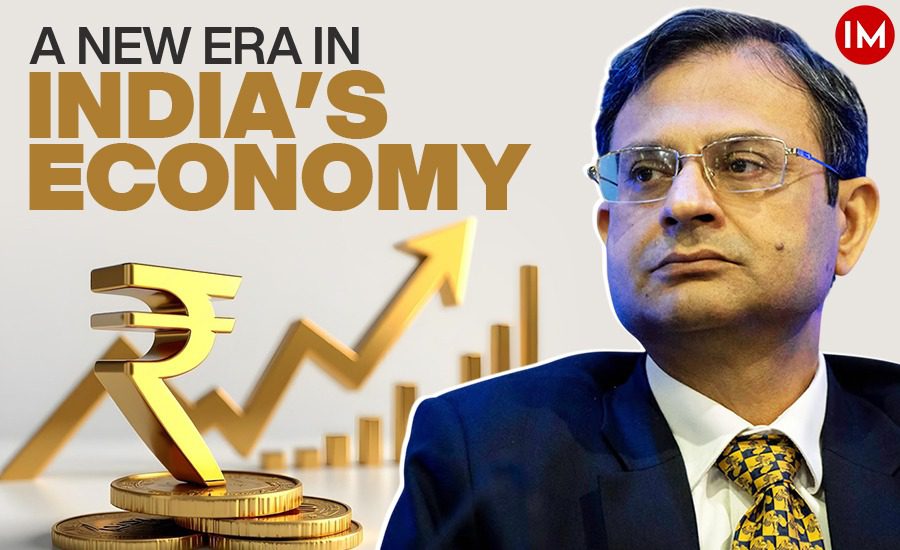Sanjay Malhotra, a 1990-batch IAS officer of the Rajasthan cadre, embodies the confluence of expertise, leadership, and reform-oriented governance. Known for his meticulous approach to public administration, Sanjay Malhotra has left an indelible mark across critical sectors like power, finance, and taxation. With a career spanning over three decades, he has emerged as a trusted strategist in steering complex policy reforms and addressing national economic challenges. As the 26th Governor of the Reserve Bank of India, Sanjay Malhotra steps into one of the nation’s most critical roles, bringing with him a legacy of transformative leadership and an unyielding focus on driving India’s economic stability and growth.
EARLY LIFE AND ACADEMIC FOUNDATION
Born on February 14, 1968, Sanjay Malhotra displayed early signs of academic brilliance. He graduated with a degree in Computer Science Engineering from the prestigious Indian Institute of Technology (IIT), Kanpur, in 1989. Recognising his potential and interest in public policy, he pursued a Master’s degree in Public Policy at Princeton University in the United States, equipping himself with a global perspective and the analytical skills required for policymaking. This combination of technical expertise and policy education would later define his success as a civil servant.
BEGINNING OF A STELLAR ADMINISTRATIVE CAREER
In 1990, Sanjay Malhotra cracked the UPSC Civil Services Examination and joined the Indian Administrative Service (IAS), being allocated to the Rajasthan cadre. His career began with postings in various departments of the state government, where he gained extensive experience in handling complex administrative challenges.
Between 2000 and 2003, he served as the personal secretary to two Union Ministers—first to the Minister of State for Space and later to the Minister of State for Micro, Small, and Medium Enterprises (MSMEs). These assignments gave him early exposure to policymaking at the central level and honed his ability to work on critical national projects.
Following this, he took on an international role as a project coordinator with the United Nations Industrial Development Organisation (UNIDO). In this capacity, he worked in a position equivalent to a deputy secretary, broadening his global exposure and understanding of industrial development and international cooperation.
LEADERSHIP IN RAJASTHAN
Returning to his home cadre, Sanjay Malhotra held a series of pivotal roles between 2003 and 2018. He worked across departments such as mining, commercial taxes, information technology, energy, and revenue. Notably, his tenure as Principal Secretary in charge of the Energy Department in Rajasthan stood out for the transformative reforms he introduced in the power sector.
Distribution Reforms: Sanjay Malhotra initiated the appointment of distribution franchisees in four towns of Rajasthan, ensuring improved power distribution and customer service.
PPP Model in Transmission: Under his leadership, public-private partnerships were introduced in power transmission, a move that enhanced efficiency and reduced operational costs.
Innovations in Metering and Billing: He spearheaded innovations in metering, billing, and collection systems, which improved revenue collection and reduced power theft in the state.
These efforts not only strengthened Rajasthan’s energy sector but also positioned him as an expert in power sector reforms.
CENTRAL GOVERNMENT ROLES
Building on his achievements at the state level, Sanjay Malhotra was appointed Additional Secretary in the Ministry of Power at the central level. In this role, he was deeply involved in:
Reforms in Transmission and Distribution: Overseeing the privatisation of power distribution utilities in Union Territories, he played a critical role in improving operational efficiencies.
Policy Development: He worked on reforms and restructuring initiatives that laid the groundwork for sustainable energy policies across India.
In November 2020, Sanjay Malhotra was elevated to the position of Chairman and Managing Director of Rural Electrification Corporation (REC) Limited, where he focused on strengthening India’s power distribution infrastructure.
TRANSITION TO FINANCE
Sanjay Malhotra transitioned to the Ministry of Finance in 2022, first as Secretary in the Department of Financial Services (DFS) and later as Revenue Secretary. His tenure in these roles was marked by significant policy decisions that had far-reaching implications for India’s economy:
Tax Reforms: Sanjay Malhotra played a pivotal role in rationalising the capital gains tax and revising slabs in the new tax regime to encourage migration from the old tax structure. These measures simplified compliance and enhanced revenue collection.
Windfall Gain Tax Removal: He facilitated the removal of the windfall gain tax, a decision that provided significant relief to the oil refining industry.
GST Council Contributions: During GST Council meetings, he worked to align the interests of states and the central government, leading to consensus on key issues such as the imposition of a 28% tax on online gaming.
APPOINTMENT AS RBI GOVERNOR
On October 19, 2022, the government appointed Sanjay Malhotra as the Officer on Special Duty (OSD) in the Revenue Department, paving the way for his elevation as Revenue Secretary on December 1, 2022. With his term set to extend until February 29, 2028, Sanjay Malhotra’s appointment as the 26th Governor of the RBI in December 2024 underscores his suitability for this critical role.
ROLES AND RESPONSIBILITIES OF THE RBI GOVERNOR
The Governor of the Reserve Bank of India (RBI) serves as the custodian of India’s reserves and the defender of the external value of its currency. As the head of the RBI, the Governor plays a central role in formulating, implementing, and monitoring India’s monetary policy. Every currency note ever printed in India carries the signature of the RBI Governor, symbolising their authority over the nation’s monetary system.
The Governor also monitors and facilitates the flow of credit to rural, agricultural, and MSME sectors. They are responsible for framing policies on priority sectors and supporting agricultural banks. Additionally, the RBI Governor oversees operations under the Foreign Exchange Management Act of 1999, which facilitates external trade and payments while promoting the orderly development and maintenance of the foreign exchange market in the country.
The Governor wields several key powers, including:
Control over Monetary, Currency, and Credit Systems: Regulating financial policies to maintain economic stability.
Heading Scheduled Banks: Leading and overseeing all scheduled commercial banks in India.
Signature on Currency Notes: Authorising the printing of currency.
Stock market oversight: Exercising influence over market operations.
Impact on Micro and Macro Economies: Implementing policies that shape the nation’s overall economic health.
This section will now be seamlessly integrated into the larger narrative of Sanjay Malhotra’s career and appointment as the 26th Governor of the Reserve Bank of India.


































